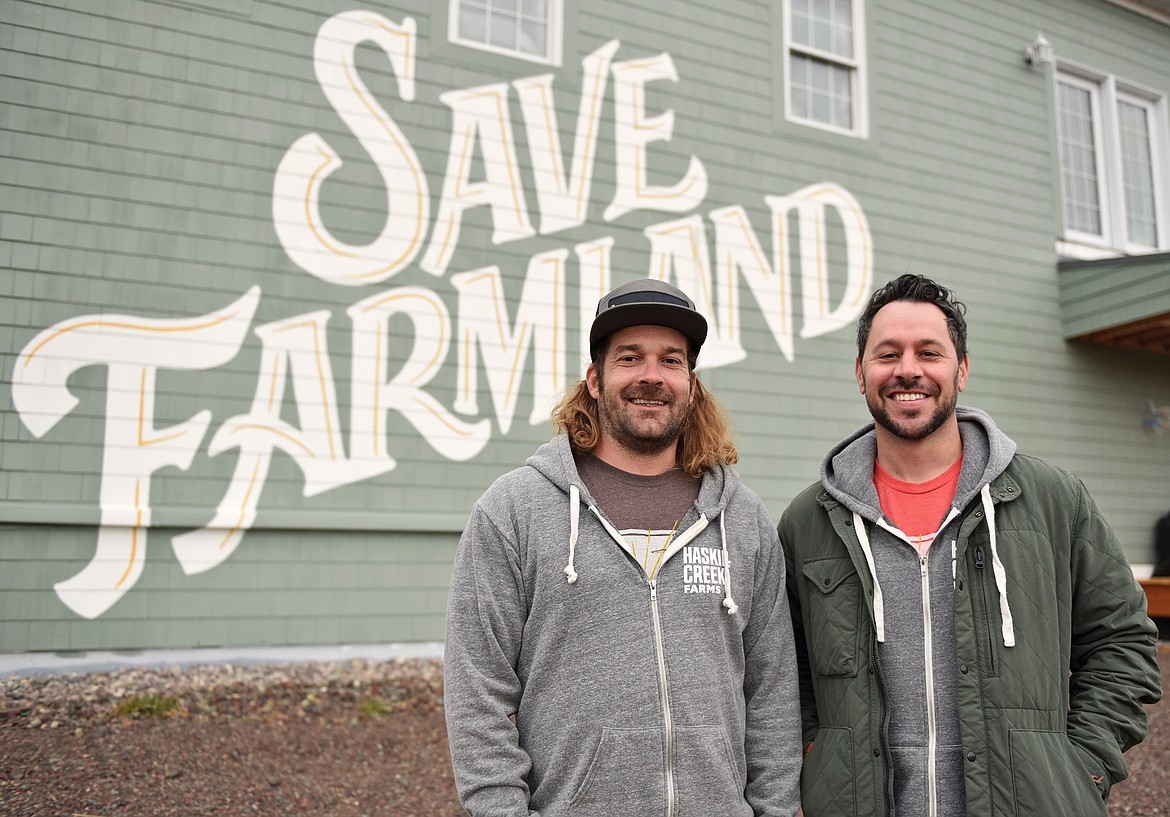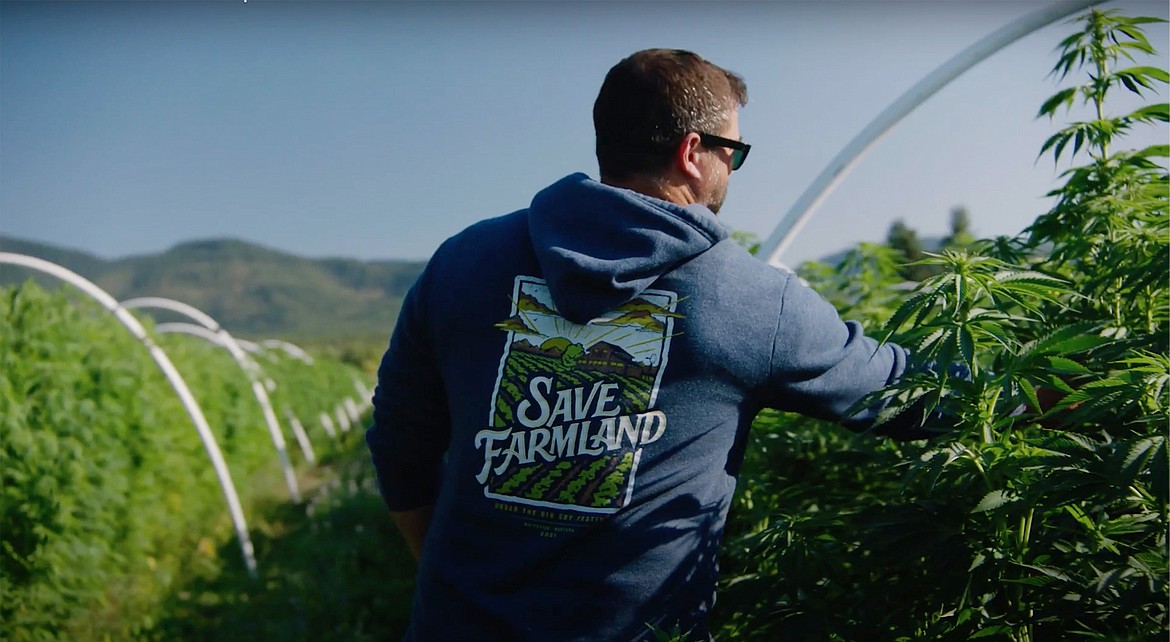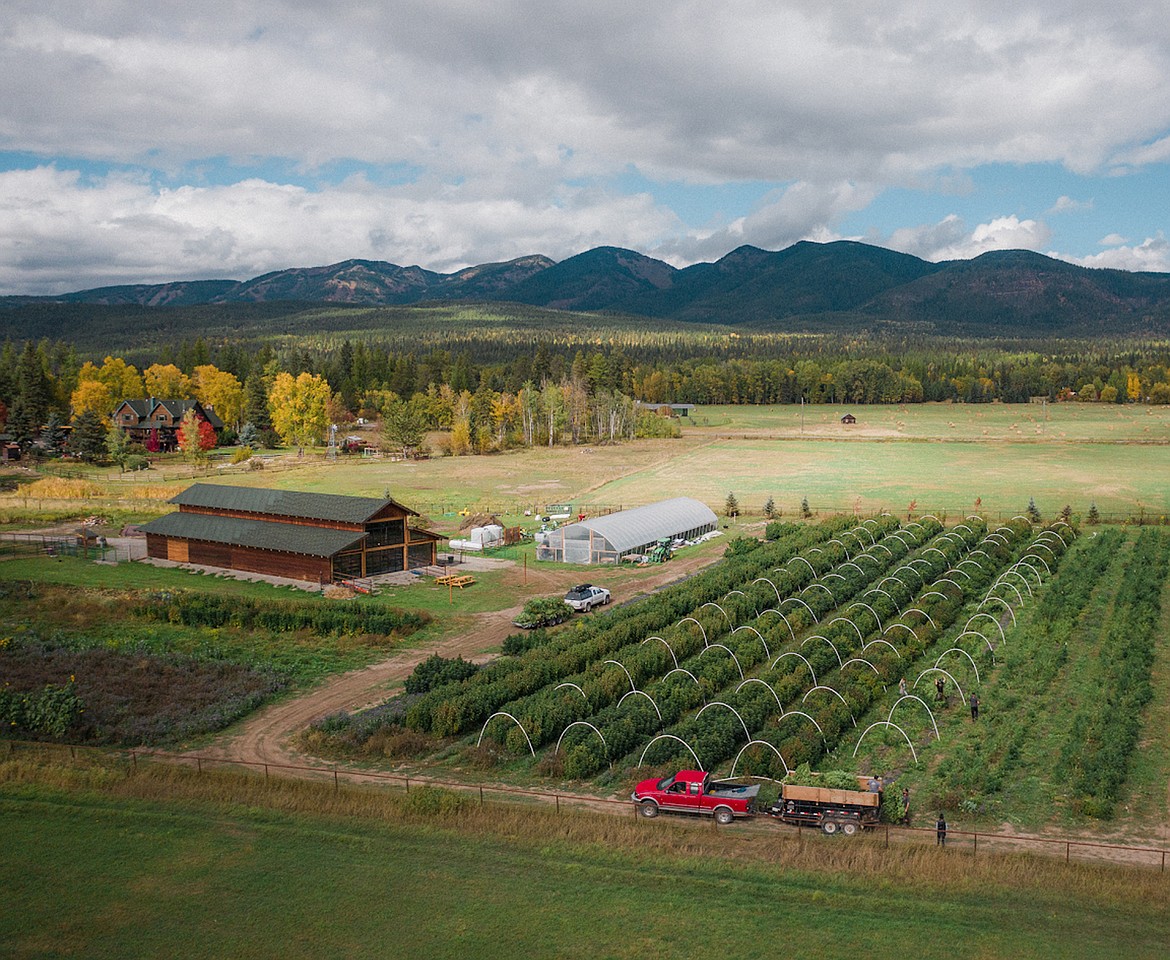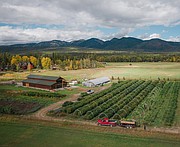Save Farmland nonprofit aims to protect agricultural land while promoting small farming
A massive mural that reads “Save Farmland” is scrawled across a former residence on Voerman Road just east of Whitefish.
The phrase catches the eye of many passersby according to Scot Chisholm, a Whitefish resident, business owner and founder of the new Flathead Valley nonprofit called Save Farmland Fund. The mission of the nonprofit is to protect and promote small farmers in the valley by acquiring farmland to save it from the reach of developers while also supporting young farmers looking to get started in the industry.
Multiple threats are challenging the local farming community in Whitefish and the surrounding areas including development that is eating up valuable farmland, the price of land is on the rise which puts it out of reach for many small farmers and large food chains are monopolizing the food that is widely available to most consumers, Chisholm says. These are major issues here that he hopes to help alleviate by forming the Save Farmland Fund.
“Our model is pretty simple — find important parcels of land that have agricultural and community value; buy them, protect them under an easement of some sort like a working farm easement and then create programs for young farmers to farm that land,” he explained.
Save Farmland was born based on this simple mission to protect farmland and help local farmers, but Chisholm didn’t just wake up one day with the vision to start this nonprofit.
Chisholm and his wife Carrie, who moved to Whitefish two years ago but have had ties in the valley for many years, partnered with Whitefish local Craig McViney to found an organic herb farm business — Haskill Creek Farms. The 30-acre farm located off Edgewood Drive with the stunning Haskill Creek running through the property is where they are growing medicinal herbs, hemp and cannabis. Together the Chisholms and McViney also purchased a property on Voerman Road that they are remodeling into Haskill Creek Farms’ first storefront.
Chisholm had interest in taking on the business venture because of his own experience using herbs for medicinal purposes.
While living in San Diego, he and a couple friends started a business called Classy which was designed as a giving platform that helps nonprofits to connect with supporters online. This business that started as a desire to make giving online donations easier, grew into a massive company that now employs over 300 people and raises over $3 billion yearly for nonprofits.
But with this growth, as CEO Chisholm was running himself ragged.
“I was in the fastlane from a work perspective, no work-life balance at all, just going a thousand miles an hour,” he recalled.
He started developing multiple health issues like chronic ear aches, migraines and difficulty swallowing. After visiting multiple doctors and undergoing medical scans, he still had no answers as to why this was happening. That’s when he started down the path of discovering and using medicinal herbs, and eventually CBD and cannabis; combined with dietary changes and then stepping away from the demanding CEO position, every condition he was experiencing faded within a few weeks.
“This experience made me a big believer in the power of plants for medicinal purposes, but also just for preventive health and wellness,” he said.
Through the process of researching herbal remedies however, Chisholm discovered that finding safe, high-quality herbs was a difficult task. Not all herbs that read organic actually are produced with that quality and many herbs are grown in various places across the world with almost no traceability.
“It was nearly impossible to find high-quality, organic, locally-sourced medicinal herbs, and also hemp and cannabis,” he recalled “You kind of have all these quality concerns, it was really difficult for me to find stuff that I trusted and that I felt confident using. And there’s no one company that does all three.”
These experiences are what steered Chisholm to co-found Haskill Creek Farms — which is planned to be a one stop shop for locally grown medicinal herbs, hemp products and cannabis, as well as other personal wellness products.
Haskill Creek Farms is its own business that is family owned and will remain locally operated, but forming the business interestingly enough led Chisholm in the direction of also founding the Save Farmland Fund.
The Chisholms and McViney created Haskill Creek Farms with a stakeholder theory philosophy which stresses the importance of relationships between stakeholders such as the customers, team members and others in the community. In order for the business to actually practice this philosophy, the founders needed to make sure the company had a way to give back to the community as it is a key stakeholder. Chisholm says he went around the community asking people what are the major issues facing the area.
“The thing that I heard with almost 100% consistency was we’re terrified of development, we’re sad to see farmland and ranchland get eaten away, we feel like there’s no mechanism for protecting [the land], and open spaces in general,” he said.
With this information he began thinking about ways Haskill Creek Farms could contribute in a positive way to these issues. Chisholm and others in the business decided on a membership fee for everyone who shops at their store, and 100% of the fee would go to Save Farmland.
Originally Chisholm wanted to partner with nonprofits that shared similar values. Although there are many conservancy focused organizations and community land trust type nonprofits, there wasn’t one specifically doing what Save Farmland hoped to accomplish, so he decided to create the Save Farmland Fund as a 501c3 nonprofit.
“I think this takes it several steps further and gets a lot more ingrained in the community,” he said. “Really hits the problem that the future generation doesn’t always want to take a farm over and then you have all these young farmers that can’t afford land. I think that’s the key here, it’s bridging that gap.”
The Save Farmland Fund has not yet purchased any land using donations because it is still forming and Haskill Creek Farms, which will generate many funds for the nonprofit, isn’t set to open until January. But Chisholm had a personal purchase of 40 acres off Voerman Road in the act of saving it from interested developers that he hopes to transfer to the Save Farmland nonprofit if possible.
“It was a personal purchase before Save Farmland existed, so it was in the spirit of Save Farmland,” Chisholm said. “It’s beautiful, the mountains, everything. It’s a great example of a key parcel... So we’re working with Abundant Montana right now to figure out how we can make this land productive again.”
Save Farmland is partnered with Abundant Montana, which helps connect consumers and local farmers, and Trust Montana, an organization that builds livable communities by preserving land.
Save Farmland has a goal to keep key agricultural land from being bought up by developers, and hopefully with support from the community the nonprofit can not only acquire land, but also create programs that assist small farmers.
For more information visit www.savefarmland.org.





